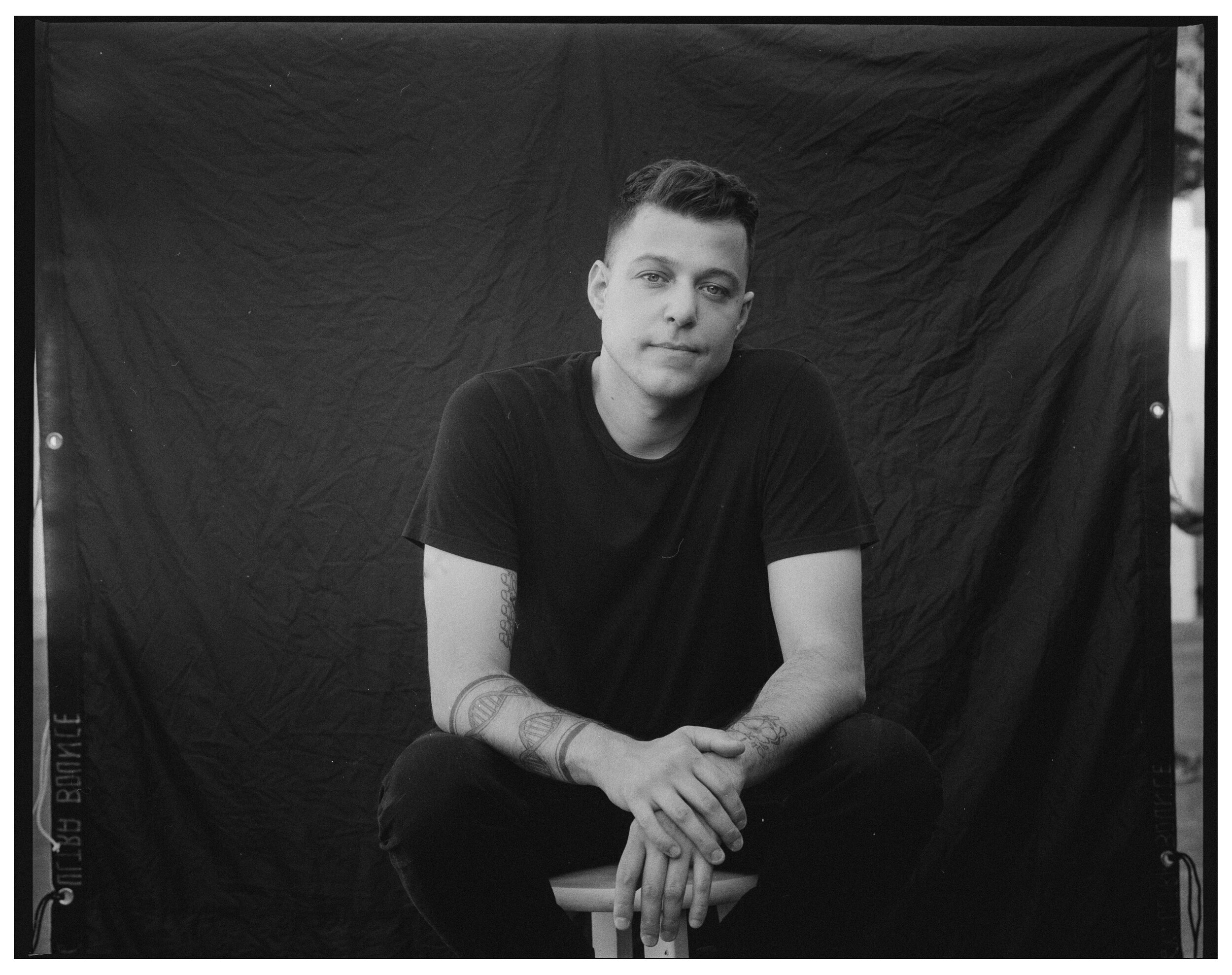by mariah estran
photo courtesy of dylan dunlap
A film score is a significant piece of any cinematography. It elevates the story, just like the actors who recite each scripted line. Tempos race during action sequences, and they wind down during dismal scenes. It is a necessary element due to its emotion-evoking powers. For singer/songwriter and avid film appreciator Dylan Dunlap, he has taken that concept to heart. He’s found the beauty in embracing his music composition and the power behind the words the sound inspires.
“I start with the music first, always,” the singer explains. “It’s a little backward from a lot of songwriter friends of mine.” Jotting down lyrics at the initial phase of a song’s development is commonplace. However, for Dunlap, rearranging these steps has allowed him to work around creative obstacles while ultimately giving attention to each layer of his art. “I’ve always overanalyzed my vocabulary. It’s been so helpful as an artist to put the music first, let it speak for itself, let it breathe, and then determine ‘what do I want this song to be about.’”
He freely recalls a moment of sitting in his girlfriend's closet, recording vocals, after piecing together chord progressions for his latest single, “Follow My Echo." “Honestly, I get satisfied just from listening to the music I create,” he adds. “I sit with that and figure out how to support it best lyrically.”
“Follow My Echo," the heart-warming four-minute jingle, is notably an excellent example of how his attentiveness to the sound has allowed him to find inspiration in numerous places. The track started from pondering on the last time he has seen the Pixar film, Finding Nemo. A blockbuster movie that left an impression on millions of kids, Dunlap being one of them. “I thought of just how influential that film was for me, and I refused to watch it. It has been six or seven years, and I wanted to write from a clean slate of what I had remembered as a kid.”
The song is no story of a fish finding its way back home. It tackles the process of letting someone go while also learning how to support from afar. You could say it is the grown-up interpretation that looks further than two adorable clownfish swimming in the deep blue. Dunlap dove into his memories — the feelings the movie conjured, without re-watching it before completing the song. “It was a grueling process; it was nothing like any of the other songs. It took two to three weeks of just writing a line a day – something that could work in the pop realm, work for my brand (Dylan Dunlap), it could also work for the plot of the film,” the singer shares.
Lyricism might come second in Dunlap’s operation, but it holds high importance. “I have such an obsession with chord progressions and music theory, but that’s not what makes me, me,” he describes. “As much as I like talking about starting music first, I still must take the necessary time to figure out what it is I want to accomplish with this piece of music.” Now realizing those conversations with his family, friends, and girlfriend could find a home in a new track. “I just stopped caring what would sound cool, what would sound like something that would be doing well on the radio. I try to focus on myself.”
When our lives came to a sudden halt due to the pandemic, Dunlap emphasized understanding himself. The restrictively isolating times had the potential to hinder creativity, but the singer could not stop working. “I’m lucky and blessed to keep finding inspiration,” Dunlap confides. “I guess I’ve looked more inward, and I’ve tried to unpack what makes me an individual.” He has now released his EP, Soldier On, which lays out genuine experiences. The love in his life, making it worthwhile in “Soldier On" to “What We Had,” uncovering the distant relationship with his father. “It’s a lot of maturing," Dunlap says when asked about the EP. “But with Soldier On, and more importantly, with the pandemic. I feel like we fast-forwarded years into the future mentally. I’m thankful I can write about it and make it a pop song.”
Soldier On might be a time capsule of sorts as Dunlap says: “they’re like little diary entries.” Yet, with all this candidness, he's found it’s better to find a balance between sad stories and overly positive ones. His right wrist with “Persevere” tattooed as a reminder, but his music is another. “There have been a lot of experiences that have traumatized me, and there are just a lot of internal struggles that I was born with," he says. “That cocktail of emotions makes it easy to write sad music, but that’s just not how I’ve ever chosen to live.”
Dylan Dunlap has found a way to remind his listeners that having an array of emotions is okay. He’s reminded them through each pop tune. “I want to make music that helps,” Dunlap states. “I’m excited to maintain a sense of realist mentality moving forward. I don’t need to be an optimist or pessimist. I can be real.”
photo courtesy of dylan dunlap
Allowing people to join his journey – as he unwraps his mental snags – simultaneously chips away the stigma surrounding this topic. “Transparency is key – if there’s ever a song that sounds like advice, I make sure to put in there ‘I’m telling myself this too,'" he says. “If I can make a welcoming environment of music that creates a safe space, regardless of the color of your skin or sexuality – it’s important to me to spread the message: ‘you’re more than enough as you are.' I think I can make a difference by doing that because I like that I’m showing that I’m telling myself that along the way.”
The attention to each detail in Dunlap’s process goes without notice. It’s finding the perfect chord that leads to a few lines of meaningful storytelling. It is what paints the bigger picture, almost like a movie. Each ingredient in the concoction he’s created aids the impactfulness, and he hopes it will continue to aid someone else who decides to listen. “I’m just trying to make music, I would have loved to have discovered myself at 14, and that’s it.”


